Love the idea of having your own horse? An equine companion can be one of life’s most incredible gifts. But before you make that commitment, there are a number of important things you should know.
Owning a horse is a promise to love and care for a beautiful animal. A lot of time and energy goes into caring for a horse every day, and there are a number of costs associated with owning a horse as well.
In this guide, we will go over what you should know with respect to these obligations.
We also will review what you should know with respect to choosing a horse and purchasing it.
Choosing a Horse
Picking a horse to buy is a very involved decision. Because a horse is a long-term commitment, you will want to take all the time you need to make the right choice. Here is what you should know.
1. Choosing a horse with a calm demeanor is essential.
Even if you like the idea of a feisty animal being your companion, if this is your first horse, you should try and pick one that will be easy to get on with.
That means you should pay close attention to how the horse moves and behaves when you go to check it out.
Look for a relaxed temperament and plenty of patience. If the horse seems at all aggressive, antsy, or anxious, it may not be a good fit for you as a beginner.
You can eliminate a lot of prospects without ever visiting the stables just by looking at the phrasing you see in the advertisements.
“Spirited” horses tend to be overly active and hard to control. The same is true if someone writes that a horse is an “endurance prospect” or “barrel prospect.”
In general, the word “prospect” can mean trouble, because the implication is that the horse is not really “ready.” It requires more training. “Started” means the same thing.
You are not an expert horse trainer; you are a person shopping for your first horse, so you do not want to be the person struggling to finish the training.
If the ad has language regarding the horse’s future owner, pay attention to that as well.
For instance, advising an “intermediate rider” or “advanced rider” is clear enough. But some phrases are a bit more nebulous, like “quiet rider.” But this means about the same thing. The horse is going to be hard to handle.
Does learning all this lingo mean you do not need to visit the stable? No. You absolutely must view the horse in person. Think about how badly a purchase of any used merchandise online can go. How many stories are out there about items not matching their descriptions?
You definitely do not want that experience with a horse.
“But I am an intermediate rider,” you might be thinking. “Why shouldn’t I get a horse on my level?”
Well, you can consider it. But again, this is going to be your horse.
Keeping up with a horse that requires an intermediate rider is one thing if you only ride that horse now and again and it is someone else’s job to care for.
But keeping up with one that you are going to be riding frequently and taking care of every single day is a different matter altogether.
It is easy to get in over your head. You can underestimate just what is involved.
So, it is better to lean toward a horse that isn’t going to be at the edge of your abilities.
2. Breed isn’t always critical.
You might think that an easy way to gauge the personality of a horse is its breed. As a beginner, you should be all set if you lean toward a Quarter Horse or another newbie-friendly breed and away from something like a Thoroughbred, right?
Well, maybe. In general terms, it is certainly a good starting point to pick a breed that has a reputation for being pretty chill.
But individual horses’ personalities can diverge from the “typical” for their breed. So you cannot assume that all Quarter Horses will be relaxed, or all Thoroughbreds will be bold and lively.
You might very well discover that your ideal horse is a breed that normally wouldn’t be recommended for beginners, but that horse’s personality is atypically mellow.
On the flip side, you could go to look at a Quarter Horse, expecting a relaxed mount, only to find that the individual horse is more than you can handle.
3. Height isn’t as important as you think.
Height gives you a general indicator of how large or small a horse is, but it doesn’t tell the full story.
Sometimes shorter horses are hefty enough to support taller riders, for example.
You will need to check out the horse yourself and try climbing into the saddle. If you can do so without trouble, the horse is not too tall for you.
How do you know if it is too short? Check where your feet are dangling. Obviously, if they are too low, you need a taller horse.
4. You are not ready for a stallion.
You would probably not be reading this if you were not planning to buy your first horse. And since this will be your first horse, you should not get a stallion.
Stallions are very hard to handle. As a result, they are inappropriate for beginning horse owners. Even a lot of experienced horse owners might not do well with them.
A mare is a better option than a stallion, but even they can sometimes be difficult depending on what is going on with their hormones.
Especially avoid any mare listed as “in foal.” That mare is pregnant.
Ideally, you want to pick a gelding, which will be much easier to control.
5. A younger horse may not be ideal.
We have already talked about how a horse should already be “finished” with respect to essential training.
This is less likely to be the case with young horses.
Older horses are more likely to be well-trained and to be settled into comfortable habits.
So when you are shopping for your first horse, you should lean toward horses that are older, not younger.
6. Looks only matter with respect to health.
Chances are good that you have a mental image of your dream horse, and this likely includes a fairly concrete image of how that horse looks.
But your horse’s appearance is really only important with respect to how it reflects that which is more than skin deep.
When you examine a horse you are considering, don’t worry about aesthetics. Just make sure you do not spot visible signs of health problems.
Ultimately, you will love your horse for the amazing relationship you build together, not for its appearance.
The Buying Process
We have talked about what you need to know to choose a horse. But what do you need to know about the actual purchasing process?
7. Sometimes sellers falsely identify their horses.
A horse should have a passport. The passport identifies the horse, just like your passport identifies you.
If the seller does not have the passport for the horse, that is not a good sign. But even if they do have it, check it carefully to make sure that the horse actually is the one the passport is for. You would be surprised how often there is a mismatch and a fake passport turned out to be in use.
8. Consulting with a vet isn’t just helpful, it’s vital.
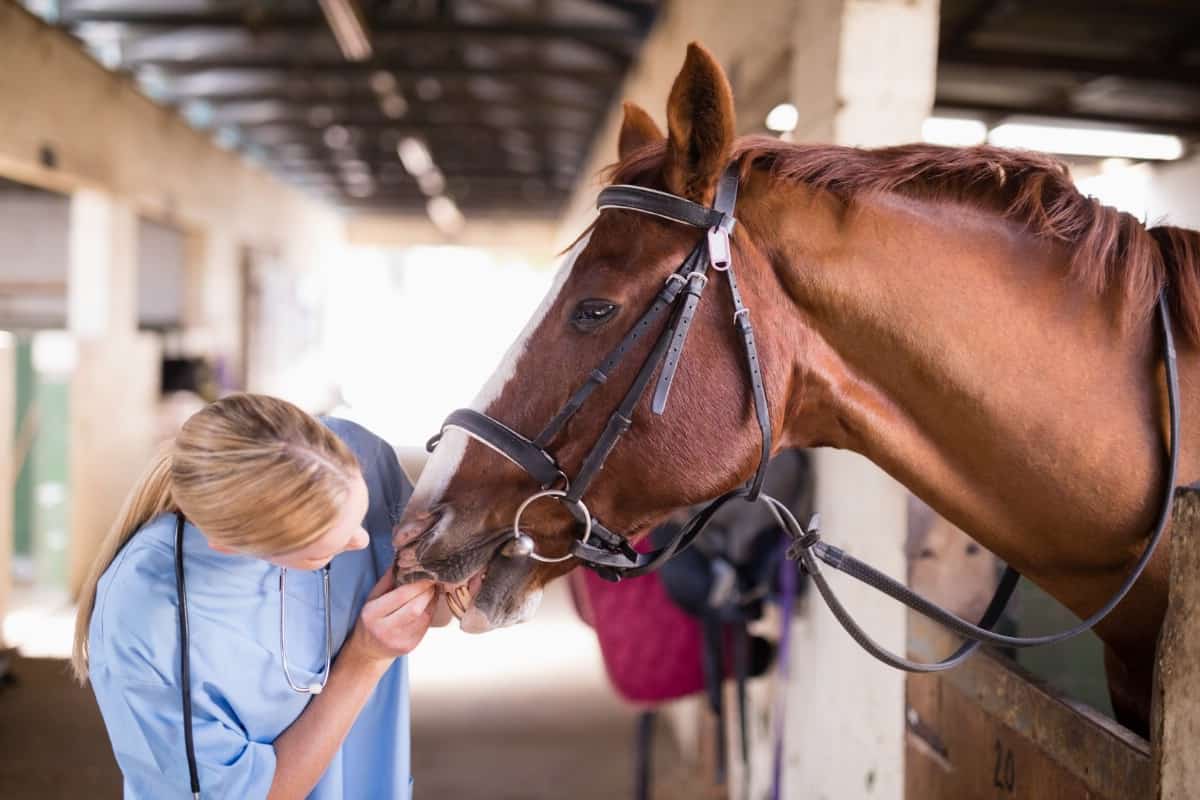
The vet also can give the horse a basic exam to let you know whether it is healthy or not and whether the ad is describing it accurately. This process is called “vetting” the horse.
Based on the vet’s report, you can make a more informed decision about whether or not to buy the horse. You also might be able to negotiate the price.
Note that you should use a vet of your choosing, not the seller’s preference. It needs to be an unbiased third party you can trust.
And if the seller is trying to get you to skip this step, that is a red flag.
Do you still need to vet a horse even if it is not an expensive one? Yes. Even if the horse’s upfront cost is cheap, that does not mean its long-term care is going to be. You need to know what you are getting into.
You might be tempted to get out of this because the vet fee could run several hundred dollars. That might seem silly if you are considering adopting a horse that costs, say, $500.
But again, this is about saving money over the long term. The vet check is worth it.
9. Unscrupulous practices among vendors are common.
It is bad enough that a surprisingly large number of sellers lie about the identities of their horses. But it doesn’t stop there.
Did you know that a lot of vendors also lie about other things, like the history of a horse or its current status?
There are even stories about sellers that have gone so far as to drug horses so that they are less spirited when a buyer is meeting them.
For that reason, it is crucial to do your homework before you visit a stable to view a prospective horse.
Find out the background of the seller and verify that they are reputable. Do the same with the horse.
10. You should make sure you are serious before you start asking questions.
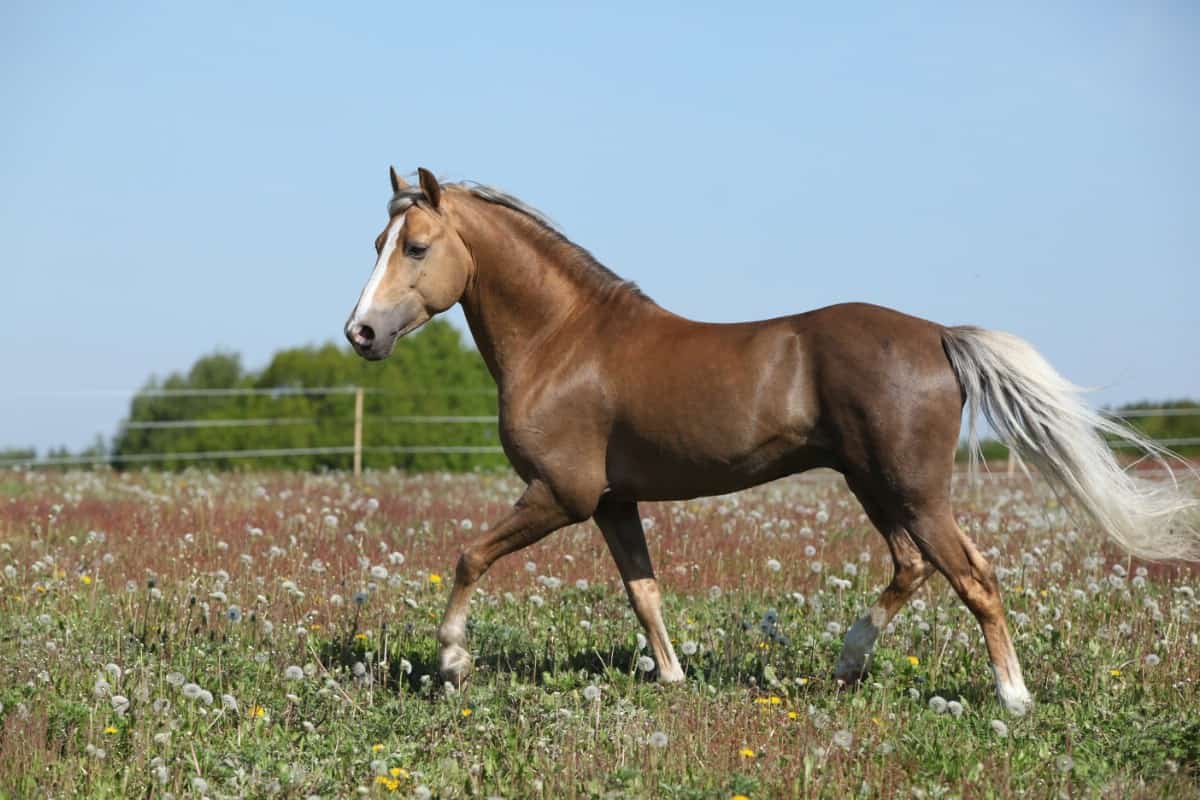
For example, you might see a horse that is out of your price range, but not so far outside of your price range that you cannot imagine buying it.
It may be very unlikely that you ever will, but you might still find yourself fantasizing about it.
It can feel exciting to write or call and ask for more information about the horse. You might even be tempted to offer a lower price to see if you can get the seller to go for it.
But you probably are not going to get a huge price drop. And you are almost certainly not going to get a better offer until you have visited.
So, if you are not planning on doing that, it is best to move on and consider another horse that is more squarely in your price range.
It will ultimately save time and hassle for both you and the sellers you deal with.
11. You can’t simply show up to see a horse.
You cannot wake up next weekend, and on a whim, jump in your car and drive to see a horse you just spotted online.
Why not? Even though it may be easy for you to spontaneously go and look at a horse, it is not something any seller will appreciate.
Someone hoping to make a sale is going to need time to prepare the horse in advance of a showing.
For that reason, you need to schedule ahead. Choose a date and time that will work for both of you, and do your best to make it.
If you realize you cannot, do not just skip it without a word and try again later. The seller will waste a lot of time getting ready for you if you do that. Contact them immediately and tell them.
12. While you are viewing the horse, taking in your surroundings is important as well.
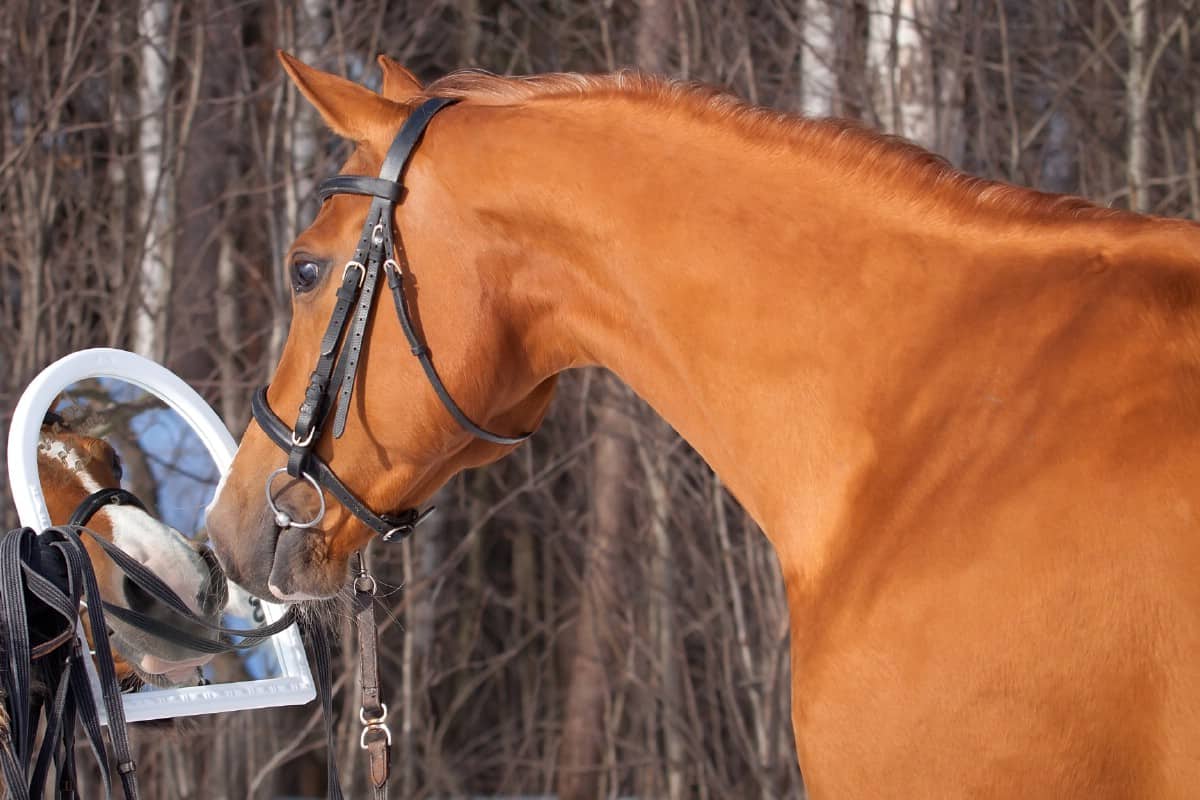
Do you see a mirror in the horse’s stall? That could be an indication that this horse is prone to separation anxiety.
Do you see any calming paste? That could also indicate that the horse can become easily agitated.
See a container of omega-3 oil? Maybe this horse has joint problems.
Do the other horses in the stalls seem less presentable than this one? Look at them carefully to see if they appear to have any serious problems, whether physical or behavioral. If they do, be cautious. Pay extra close attention to the horse you are considering in case it also has issues due to poor care.
13. A second opinion can be worth its weight in gold.
We talked about having a horse “vetted.” That is a good example of a valuable second opinion. But you might also want to consult with someone else for additional perspective on a prospective mount.
While a vet can provide you with a lot of insights, you might get additional insights from your instructor, for instance.
You could also simply have a friend look at the horse who has more experience than you.
Ideally, this person will also view the horse in person. But if you cannot arrange that, you should capture video footage of the horse and take photos from many different angles. You can show these to the person whose opinion you want to consult.
You could be surprised (and relieved!) when you are talked out of a bad purchase. Alternately, you may be able to move forward with greater confidence if your instructor or friend agrees with your assessment of a mount.
14. Having an instructor look at a horse is not free.
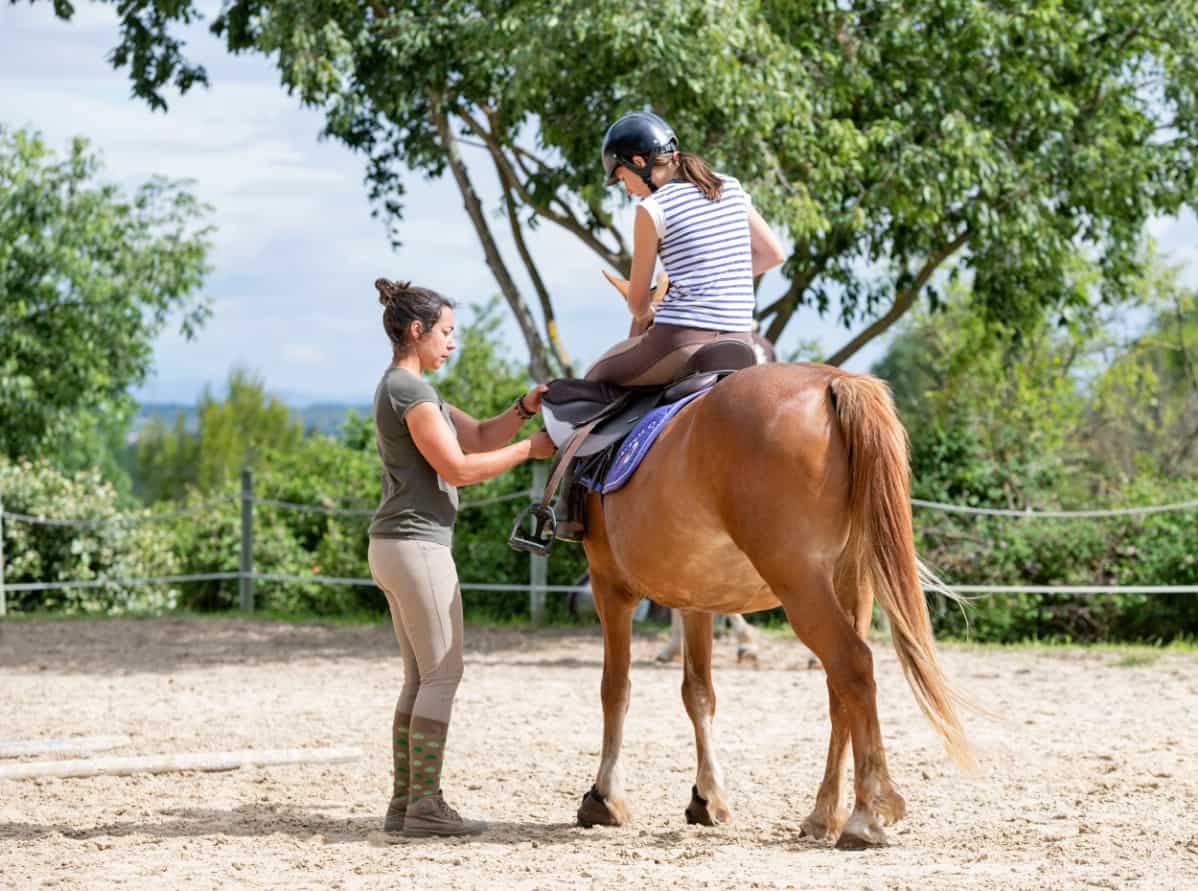
In fact, they may charge you twice. The first charge will be a fee for inspecting the prospective mount. The second will be a commission.
Rather than charging a flat fee as the commission, this will usually be a percentage of the sale price.
This could range anywhere from 10-20%.
While your instructor helps you to choose a mount and get a fair price, the seller’s instructor will potentially be involved as well for the same reason.
You do not need to pay a fee or a commission to the seller’s instructor. That is for the seller to do.
15. There is always “someone else looking at the horse.”
One thing you are going to encounter a lot as you are viewing horses as a first-time buyer is a claim from the seller that “someone else is very interested” in the animal.
Repeat horse buyers also run into this, but they know something a lot of newbie buyers don’t, and that is that sellers always say this.
The seller wants you to move fast on the horse, so they are trying to make you feel like there is a time limit, and you are about to miss out on an opportunity.
Does that mean there is never another buyer? No—sometimes there is. But more often than you might expect, it is just you.
So, try not to feel like you need to make a snap decision. You should always take your time buying a horse.
Yes, that does mean that sometimes an amazing mount will slip through your fingers.
But better that than making the wrong decision and bringing home a horse that will not suit you.
16. Return or exchange agreements are often of little use.
There are situations where you might get an excellent return agreement for a horse. But a lot of the time, this will not be the case.
For example, you may have the option of returning the horse, but not getting the full price you paid back.
Another possibility is that a seller will not offer returns at all, only exchanges.
For that to be suitable, you would need to be prepared to take one of the other horses the seller has on offer.
So, you would need to look over them as well, and be fairly sure at least one of them would make a viable replacement.
Chances are good that none of the other horses are going to satisfy you if the one you pinpointed as the one you wanted fails to satisfy.
So, just be aware that a return or exchange agreement does not always remove the risk from your purchase.
This is why it is very important to get your purchase right the first time.
17. Written records are of supreme importance.
Don’t make some sort of a “handshake deal” when you buy a horse. Everything needs to be formalized and written down.
That means you need:
- A purchase contract.
- A receipt.
The documentation you get should describe what you paid for the horse (or will pay, if there are installments), the horse’s identity, passport number, and description, and what date you viewed and rode the horse before purchasing it. Warranty, return, and exchange information also must be in writing.
Both you and the seller need to sign all of the documents.
Along with all of the information above, you need to get contact information for the seller. If you discover that the seller misrepresented the horse, you might decide to take legal action, and you need to be able to find them.
What if the seller does not provide the forms? That is okay because you can provide them yourself. You can find them online.
Obviously, if a seller is refusing to sign papers, you should move on and find someone else to sell you a horse.
Are You Ready for a Horse?
Before purchasing a horse, you need to know what you can expect regarding your future with your new equine friend. Are you up to the task? Here is what you need to know.
18. The real cost of a horse is long term.
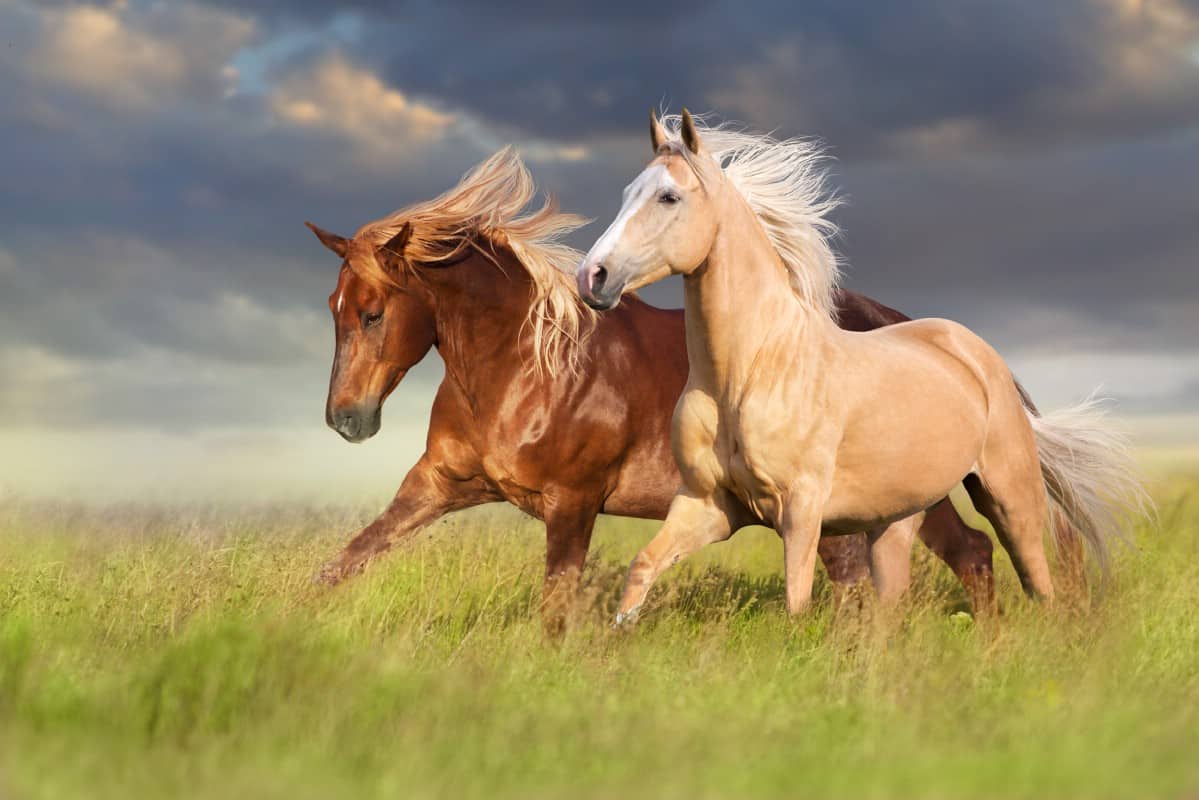
You could get away with significantly less than that. Indeed, if you are okay with an older horse and do not need one that can handle a lot of intensive riding, you might be paying less than $1,000 to adopt a mount.
In the grand scheme of things, that may seem like nothing. After all, you might pay that to buy a dog from a breeder. Being able to get a horse so inexpensively may seem mind-blowing.
But it is important to understand that the real cost of buying a horse is not what you see listed as the sale price.
It is not even the sale price + the associated fees and commissions.
Here are some of the costs involved with owning a horse over the long-term:
Boarding, if you do not have your own stable
- Hay, food, salt blocks, mineral supplements, and any other necessary supplements
- Farrier care
- Lessons
- Veterinary and dentistry care
- Tack
- Costs related to competing if that is something you plan on doing
What does all of that add up to? Assuming you have a healthy horse and no special requirements and you are keeping your costs to a minimum, you might get away with around $1,850 per year not including the costs to board the horse.
Don’t forget that things can change quickly if your horse gets sick or injured, or if there is any other kind of emergency you need to deal with.
If you need to pay to board the horse, there is a wide cost range. At the lower end, it should run you around $1,200 per year.
At the higher end, the cost to board a horse can be up to ten times that.
An average cost to care for a horse is about $4,000 a year.
Depending on how old the horse you purchase is, you could have that mount for decades.
So, total that up and think about whether you are ready to keep up with about $4,000 a year in extra expenses.
And remember, life circumstances can change. You need to be reasonably sure you can afford the horse not just now, but down the road.
Owning the horse now and having to sell it in a decade because you can no longer pay for its care would be beyond heartbreaking.
So, just be sure you are financially ready.
19. A community can make it a lot easier to own and care for a horse.
While it may be a romantic notion to think of just you and your horse riding across green pastures needing no one but each other, having a support network can make a big difference in both your lives.
There are going to be times when you need help with your first horse. You might have a question about your horse’s health or about daily care.
Or perhaps an emergency will come up, and you will find yourself panicking without someone to turn to.
Bringing a horse into your life also is a big transition in general. While it can be an exciting one, it can also be overwhelming and stressful at times, and you might just need someone you can talk to.
Plus, you’ll want people you can share the joys of having a horse with as well.
So, if you do not have such people in your life now, consider finding them before you move forward with a purchase.
An instructor can be a valuable resource, as can fellow riders in your local area or even online.
20. A horse is a big commitment in terms of time, energy, and dedication.
Ultimately, the cost of owning a horse goes far beyond the financial costs involved.
A horse will give you amazing experiences and loyal companionship, but to enjoy those privileges, you need to be prepared for lots of work every day.
That means making sure you can not only budget the financial costs but the time. Can you balance horse care with your other obligations?
The sheer amount of physical effort involved in taking care of a horse also is pretty substantial.
You will need to be sure that you have the stamina to keep up with washing your horse, dealing with manure, and taking care of other horse care jobs.
Finally, there is a massive emotional commitment involved with keeping a horse.
Your horse can become your best friend in the world, but you need to be ready to be its best friend too.
That means spending lots of time with your horse riding, training, playing, and just hanging out.
It means not giving up on hard days when your horse isn’t feeling well or is struggling with anxiety or other challenges.
It means loving your horse just as much in ten years or twenty as you do when you first bring it to your stable.
Things You Need to Do Before You Purchase the Horse
We have now talked about what you should know before you get a horse in terms of choosing one, purchasing one, and being sure that you are ready to own one.
But what are some things you should do before you go ahead with the purchase?
21. You need to have recent riding experience and ongoing training.
It should go without saying, but you need to know how to ride a horse before you buy one.
Just because you grew up riding a horse and feel like you could pick it up again quickly does not mean that you are ready to buy a horse.
You should be taking weekly riding lessons and should have a fair bit of recent riding experience before you buy a horse. How much? Aim for at least six months.
Practice taking care of a horse is as important as experience riding.
You might think you are ready to buy your first horse if you are becoming a good rider. But do you have any experience taking care of a horse?
Horse Courses by Elaine Heney
- Listening to the Horse - The Documentary by Elaine Heney & Grey Pony Films
- Shoulder In & Out Training for better balance, bend & topline development with your horse
- Over 110+ Polework Exercises & Challenges to Download
- Dancing at Liberty & Creating Connection with Your Horse (11 lessons) - Grey Pony Films
There is a lot you can pick up if you are taking riding classes, even if you never actually take care of any horse care chores yourself—but that is no substitute for experience.
Let your instructor know that you want to buy a horse. Ask to expand what you are learning to encompass horse care, and start actually taking care of one of the horses you ride at the school. Find out first hand if you are ready for this to be part of your daily life over the years ahead.
22. You need to have an emergency fund.
Along with being able to cover a horse’s ongoing annual expenses, you need to be ready for significant out-of-pocket costs now and again.
That means you do not just need a suitable income for your horse, but also enough of a liquid financial buffer to handle emergencies.
How much should be in that emergency fund? You should stockpile at least a few thousand dollars. One vet visit could clean all of that out in one go.
23. You need a stall for your horse and tack. A public boarding stable may be best.
If you have your own barn for your horse, that can save money, but you might want to consider budgeting for space at a public stable instead to get started.
Why? Because that gives you access to help when you need it! You will have questions starting out, and sometimes, you might also want an extra hand.
Even if you plan to take care of your horse yourself as much as possible from day one, you will be glad to have others to turn to when you need assistance.
Obviously, you also need to make sure you have all the tack you think you will need before you buy your horse as well.
But once again, a public boarding facility can fill some gaps if you do find you are missing something (and it will almost certainly happen from time to time starting out).
After you have some experience owning your horse, you can transfer it to your own barn if you want.
Only Move Forward With Getting a Horse Once You Know You Are Truly Ready
We have now gone over a number of important things to know before you buy a horse.
We have talked about long-term care considerations as well as the process of choosing and buying a horse.
Additionally, we have gone over some recommendations for what you should do to get ready prior to bringing an equine companion into your life.
It can be hard to hold back from buying a horse until you are truly ready because the excitement can be hard to resist.
But if you wait a bit longer and make sure you are absolutely prepared for this huge commitment, you will be happy with your decision in the long run. Most importantly, you will be ready to give your horse a good life.


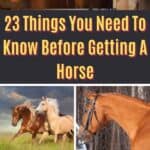
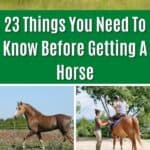
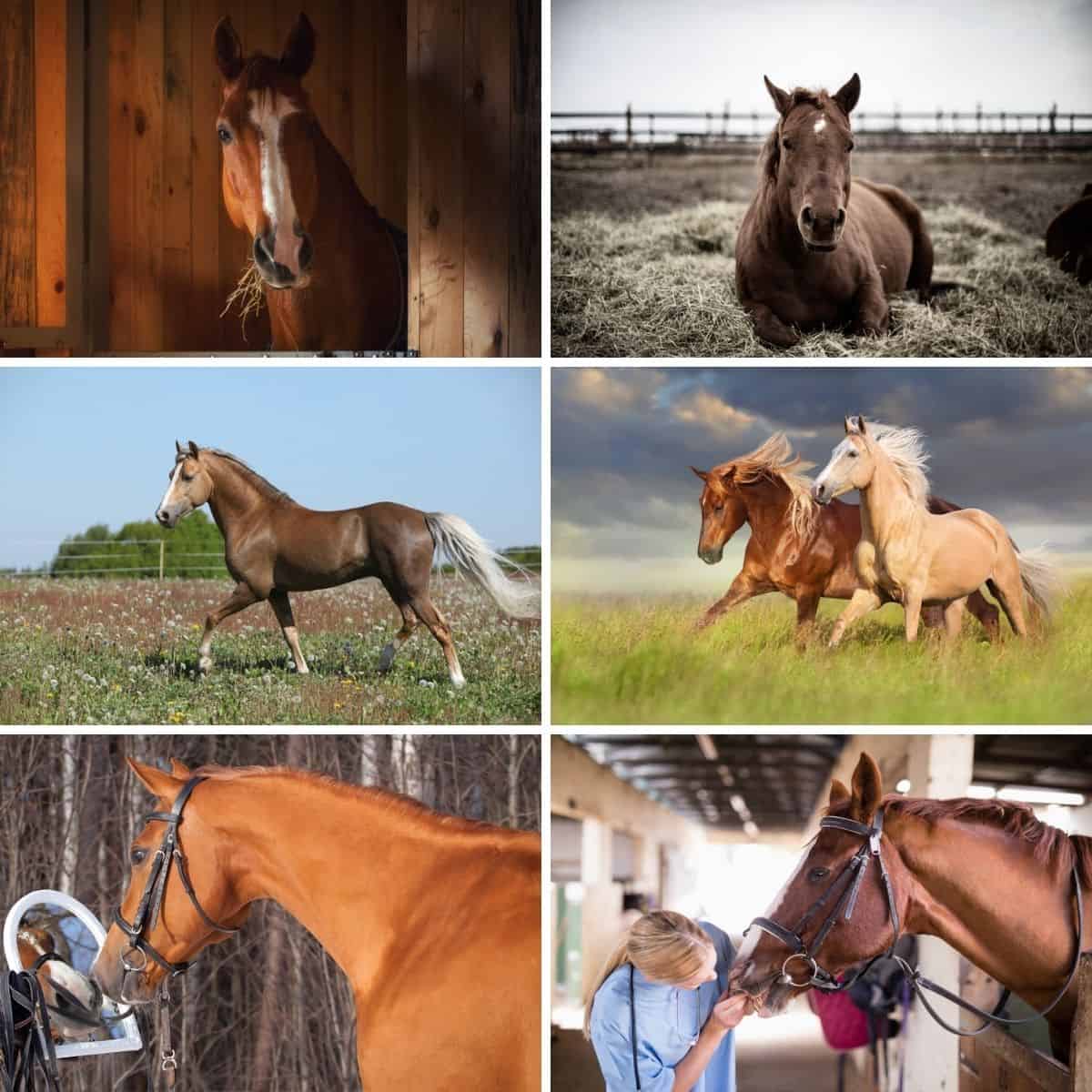
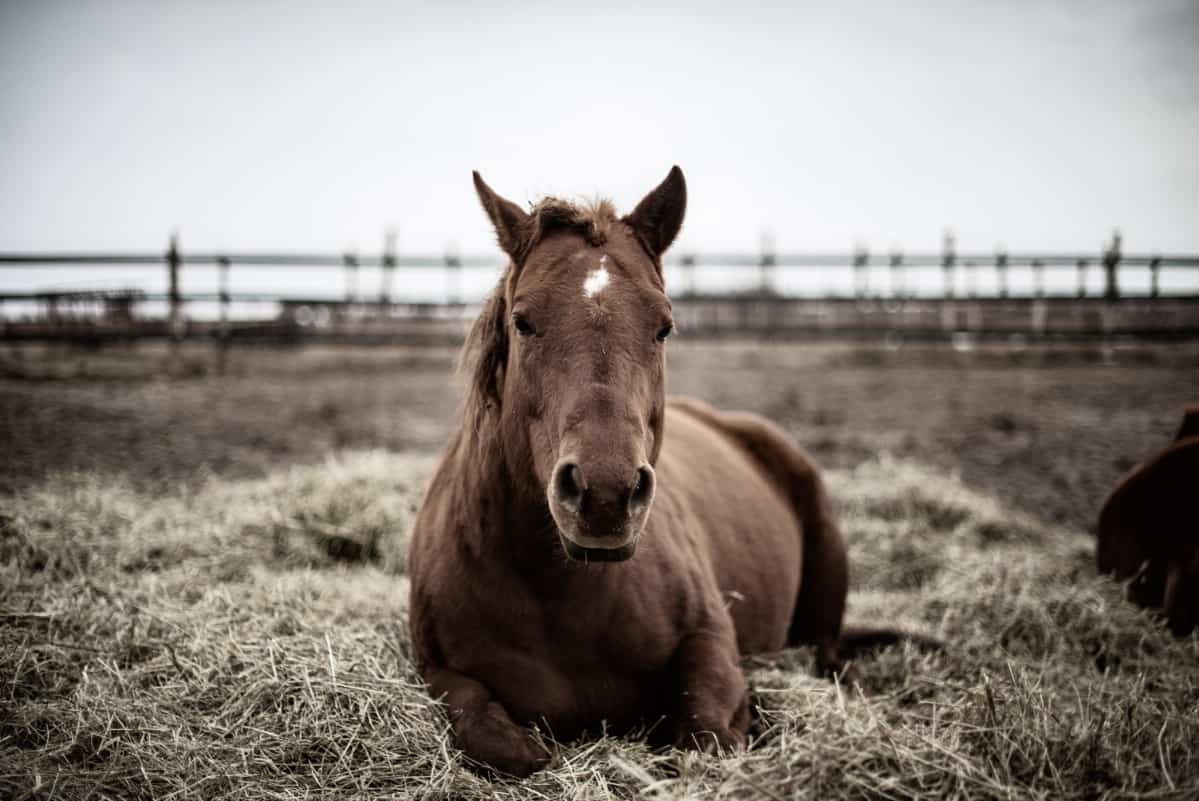
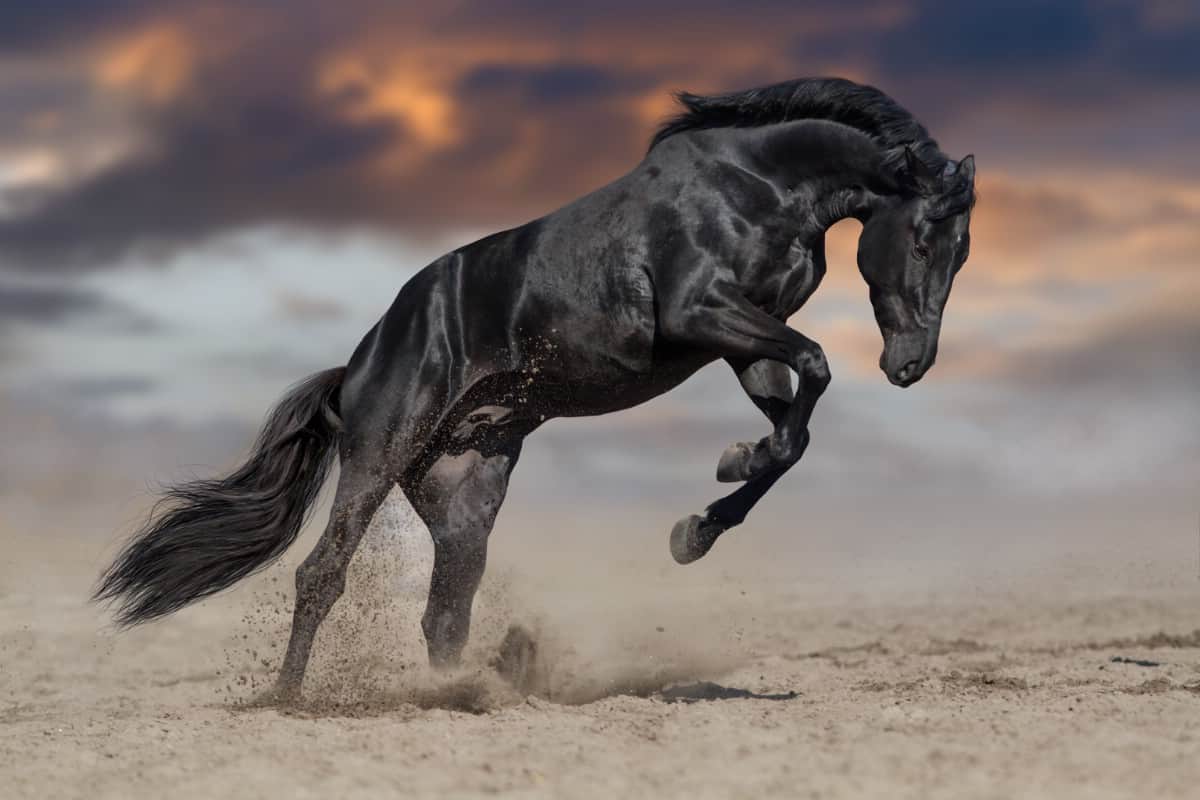
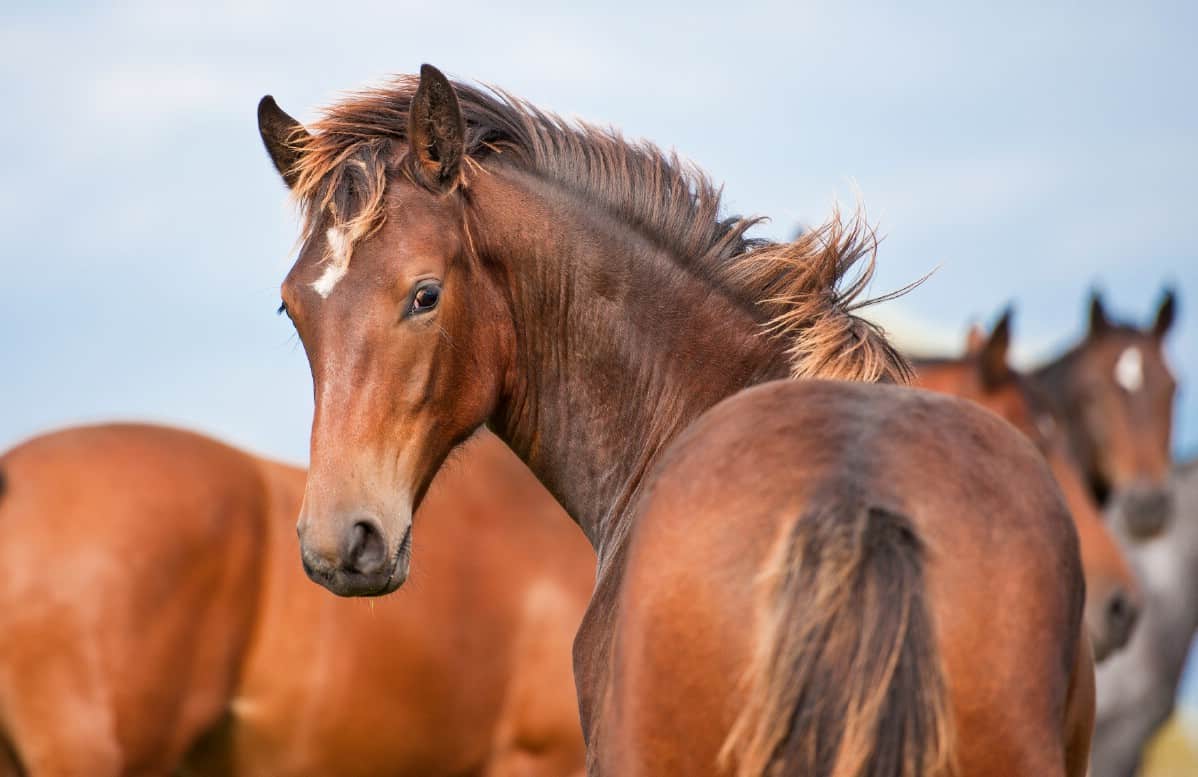
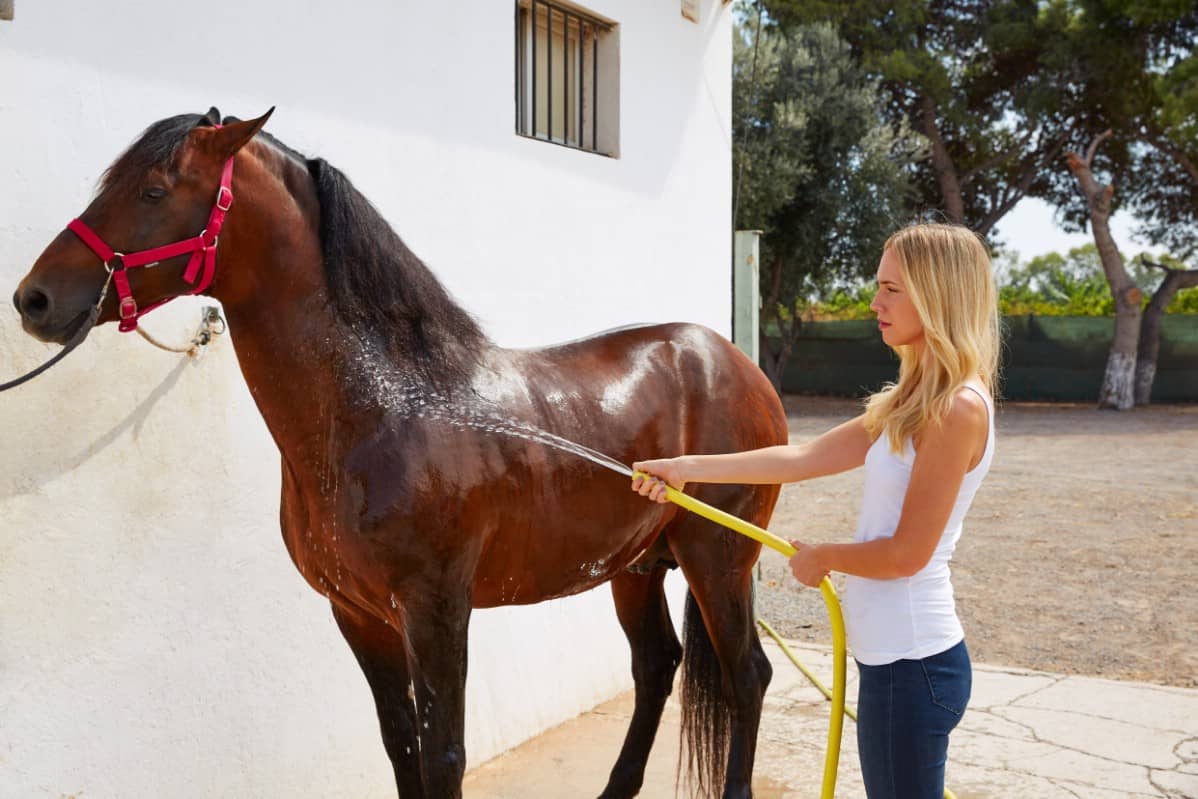
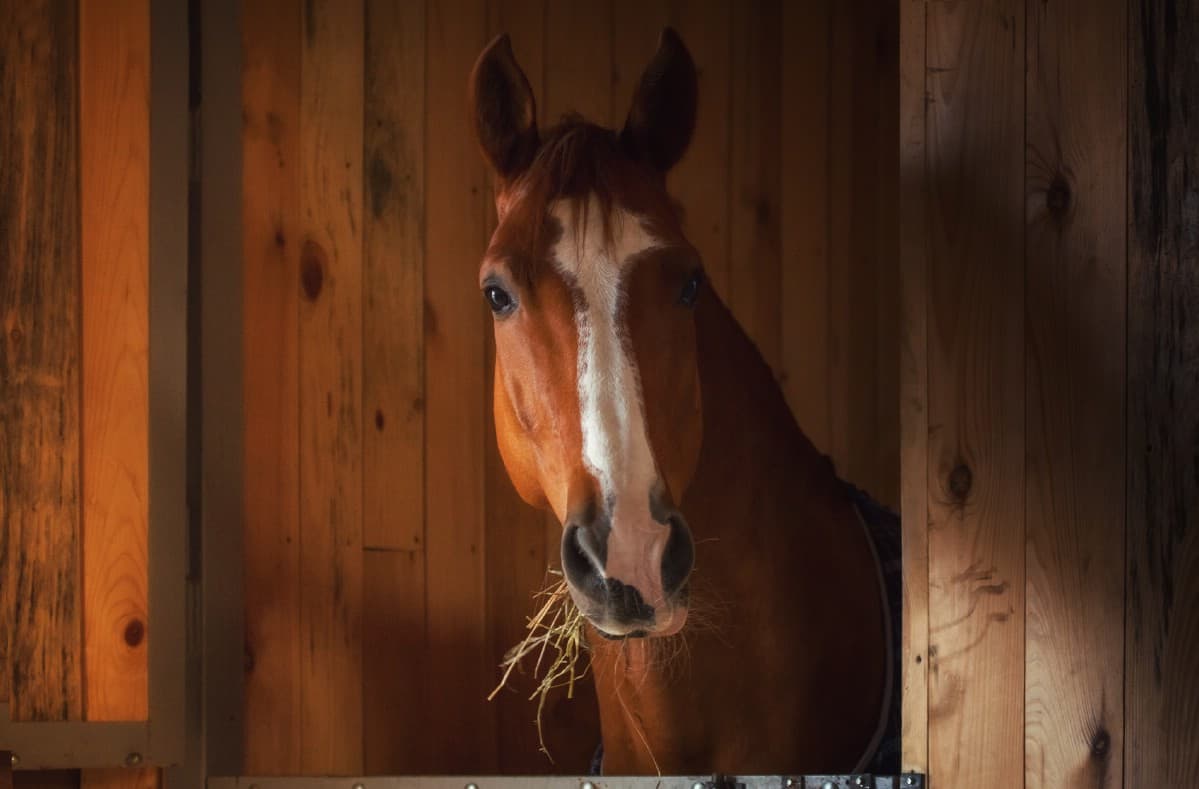
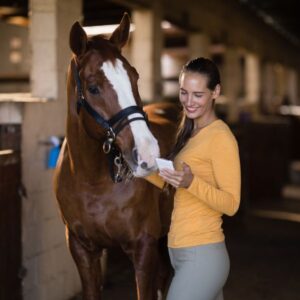
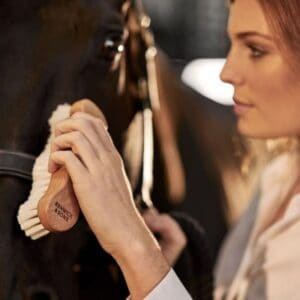
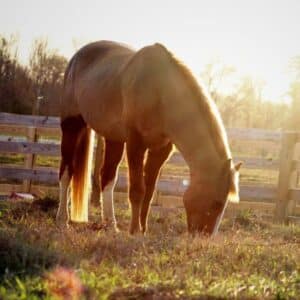
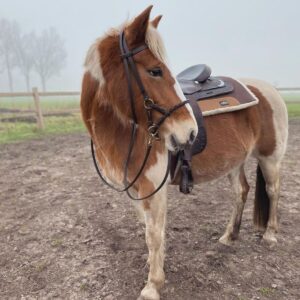
Avi
I am wanting to buy a barrel/pole bending horse for competing. Even though I have never owned a horse, I have ridden and cared for many horses. It will cost 8K a year for me to board, farrier bills, and annual vet checks. I want to have a 3K emergency fund just in case. I am prolly 1-2 years out from actually buying the horse as my parents said I have to save 8K + the adoption fee. My riding instructor is coaching and walking me through all this. Right now I am waiting till I get my drives license and I get a job. My ideal horse is a younger Quarter horse, I would prefer a mare, but I am open to a gelding. I don't care about coat color. My instructor is a trainer and has broke/started many horses, so I would be open to buying a green broke horse and finishing it myself (with help). I know this goes against this article, but I really need a horse that can take me far and has way more go then woah! Any thoughts?